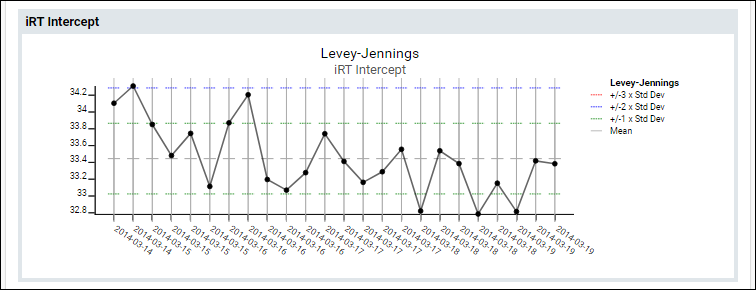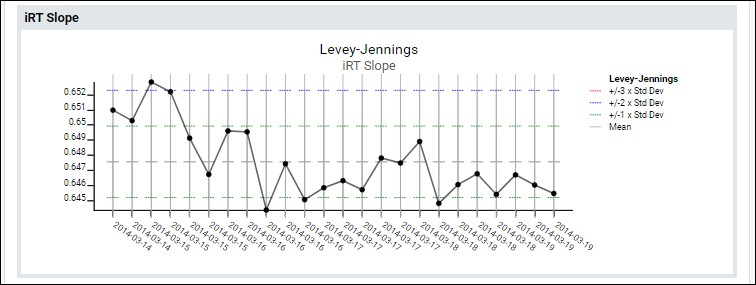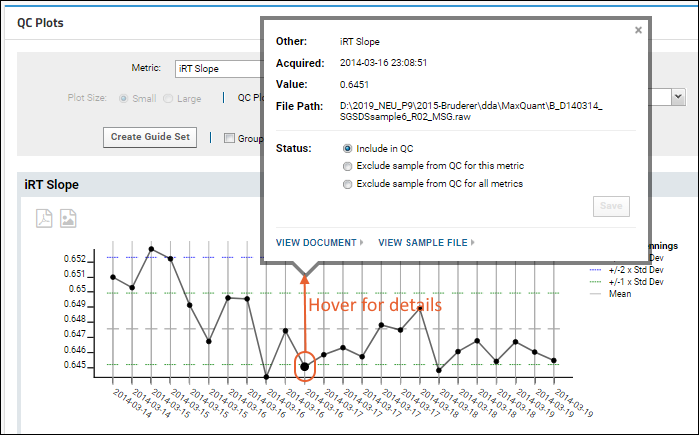Indexed Retention Time (iRT) is a scheme for calibrating retention times across runs. For example, you might use an
iRT scale like
this set of 11 synthetic peptides from Biognosys. Based on these, peptides, the set of iRT anchor points can be extended to other peptides. The iRT of a peptide is a fixed number relative to a standard set of reference iRT-peptides that can be transferred across labs and chromatographic systems. iRT can be determined by any lab and shared transparently.
This topic describes how you can use metrics related to the iRT calculations as system suitability metrics in Panorama. Monitoring the slope, intercept, and R-squared correlation values for the regression line can help mass spectrometrists confirm that equipment is performing as expected.
iRT Metrics
The iRT metrics (slope, intercept, and R-squared correlation) are scoped to each sample file. Panorama will detect whether to include these metrics alongside
other metrics available in QC plots based on whether the Skyline document is configured to monitor iRT. Learn more about plot options in this topic:
Panorama QC Plots
iRT Correlation

iRT Intercept

iRT Slope

Hover Details
As with other plotted metrics, hover over any point in the plot to see details including the value and acquired date.

From the hover panel, you can also choose to exclude the sample from QC if desired. Learn more in this topic:
Panorama QC Plots
Notifications
Users can subscribe to receive notifications when iRT metric values are out of range, as for other outlier values. Learn about outlier notifications in this topic:
Panorama: Outlier Notifications.
Related Topics